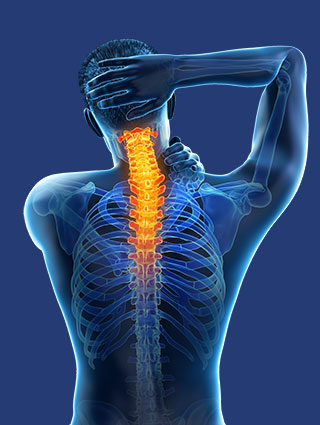Have you ever felt like the room was spinning around you for no apparent reason? Or perhaps during moments of intense stress, does that dizzying feeling intensify? If you're nodding your head, you're not alone. Many people experience vertigo and anxiety together, but the connection between these two conditions is often overlooked. Let's explore how these experiences might be related and what you can do to find vertigo relief in Redwood City.
Vertigo isn't just a fleeting dizziness; it's a disconcerting sensation that you or the world around you is spinning uncontrollably. This condition often stems from issues in the inner ear, particularly the vestibular system which governs our balance. Yet, it’s not just physical issues that can trigger vertigo. Emotional factors, specifically anxiety, play a significant role too.
Anxiety doesn’t just increase the risk of developing vertigo, such as benign paroxysmal positional vertigo. The fear and uncertainty that come with vertigo can create a terrifying cycle, where anxiety leads to more vertigo, and more vertigo leads to increased anxiety.
Anxiety affects the body in profound ways, influencing everything from our heartbeat to our breathing. In the context, stress and anxiety can have a detrimental impact on the vestibular system, disrupting the delicate balance maintained by our inner ear.
Elevated stress hormones, like cortisol, interfere with the normal functioning of this system, potentially leading to episodes of vertigo. Furthermore, the physical manifestations of anxiety, such as hyperventilation, can intensify the sensation of dizziness, further feeding into the cycle of vertigo and anxiety.
Managing this anxiety is, therefore, a crucial step in treating and mitigating vertigo, breaking the cycle that binds these two conditions.
Anxiety and vertigo often coexist in a reciprocal relationship where each can exacerbate the other. Anxiety can trigger physiological changes that contribute to vertigo, while experiencing vertigo can naturally lead to increased anxiety, creating a cycle that can be challenging to break. In the midst of this interplay lies the atlas subluxation—an often-overlooked factor that can influence both conditions.
The atlas is the topmost vertebra in your spine, sitting just below the skull and forming a pivotal point for the head and neck. It supports the head and facilitates its range of motion. However, if the atlas is misaligned (due to trauma, poor posture, etc.), you become at risk for significant physical and neurological problems. An atlas subluxation can impinge on nerves and affect blood flow to the brain, which are crucial for maintaining vestibular (balance) functions and emotional regulation.
The atlas vertebra is uniquely positioned near the brainstem, which plays a critical role in transmitting information between the brain and the body. A misalignment can disturb this communication pathway, worsening stress responses and anxiety symptoms. This disruption can also affect the vestibular system, leading to sensations of dizziness or spinning—symptoms commonly associated with vertigo.
Atlas subluxation often results in compensatory muscular changes in the neck and shoulders. These muscular tensions can further contribute to anxiety through physical discomfort and stress. Moreover, such tensions can also worsen the symptoms of vertigo by affecting the position and stability of the head and neck.
Fixing an atlas subluxation through chiropractic adjustments offers a direct approach to alleviating both anxiety and vertigo. Restoring the alignment of the atlas ensures optimal communication through the nervous system, helping to stabilize mood and reduce anxiety levels. This alignment also restores proper balance mechanisms, directly reducing the frequency and intensity of vertigo episodes.
Additionally, adjusting the atlas reduces the strain on muscles and other tissues in the neck and head area, alleviating the physical manifestations of anxiety and helping the body maintain a more natural equilibrium.
If dizzy spells and anxiety are part of your daily life, remember, you're not alone, and more importantly, you're not without options. Dr. Pete Tsiglieris can help determine if a misalignment in your neck is part of the problem. By addressing both your mental and physical health, you can achieve a more stable and serene state of being. Schedule your appointment with our Upper Cervical doctor today!
To schedule a complimentary consultation call our Redwood City office at 650-595-0500 or you can also click the button below.
If you are outside of the local area, you can find an Upper Cervical Doctor near you at www.uppercervicalawareness.com

